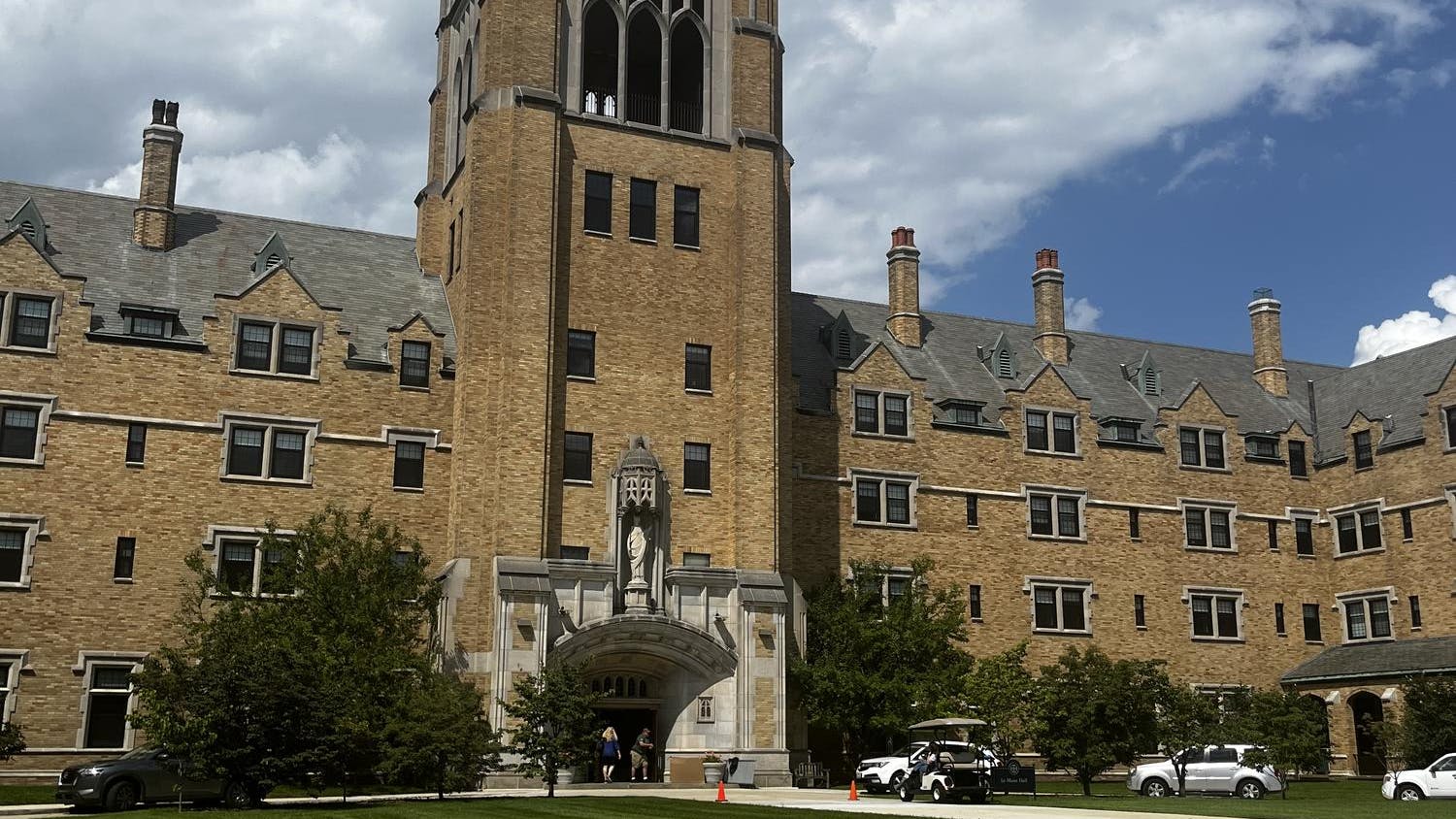For most Notre Dame students, leaving home for college means adjusting to independent living, a Midwestern twang and colder weather. For about 900 international students, however, the transition is far more abrupt.
Freshman Rena Multaputri said the close-knit community at Notre Dame made leaving Indonesia more manageable.

"I went to a Mass in the Basilica on my first day here at Notre Dame and I saw people hugging each other during mass and singing the Alma Mater proudly at the end of it," Multaputri said. "It opened my eyes to the tight community that the University has to offer, and I am grateful to be a part of it."
Multaputri said she had always had a desire to study away from home.
"I had always known I was going to pursue my education somewhere else outside Indonesia because my family had always put importance on education for both me and my sister," Multaputri said. "After I got my acceptance letter, I tried to find more information about Notre Dame and the other schools that I got accepted into ... the more that I knew about Notre Dame, the stronger my desire to come here."
Though she plans on working in the U.S. immediately after graduation, Multaputri said she plans on eventually ending up back in Indonesia.
"I have never put much thought on what I am going to do after I graduate, but most probably I will stay for a few years to find some working experience and then go back to Indonesia after that," Multaputri said.
Sophomore Pedro Suarez, originally from Brazil, said his greatest challenge was adjusting to American food.

"It's a cultural thing. We'd sit down for long dinners and long lunches," he said. "I eat really slowly because at home I'm used to meals being events that bring people together, but here it's so different: people just eat fast, whenever it's convenient."
Suarez said though he loves the community at Notre Dame, he misses his close-knit family in Brazil.
"People in Brazil are very attached to their families ... My friends are all living with their families as they're going to college and to them it's a very alien notion to think of living on their own, doing their own laundry and getting their own food," Suarez said. "I think it's hard for a lot of Brazilians to study abroad because of their attachments to their families, regardless of what opportunities may have presented themselves."
Although American life is vastly different from what he was accustomed to, Suarez said the move was not too difficult.
"I've always grown up in a fairly American environment, I even went to an American school," Suarez said. "It was still weird to transition from primarily talking in Portuguese to talking in only English, but I got used to it pretty quickly."
Junior Jonathan Faubert said the language change was a formidable adjustment, but one he was well prepared for.
"I've been to so many different countries that I don't really get culture shock anymore," Faubert said. "I'm used to living in different places, and meeting different people in different environments ... so for me the differences between Mexico and Notre Dame were not a huge shock."
Faubert said the Notre Dame fascination with football seemed alien to him at first.
"[On the Hesburgh Scholars Weekend] they gave us private tours of all the facilities on campus ... we actually saw Brian Kelly's first practice," Faubert said. "We all thought, 'This is fun,' but we didn't understand why it was such a big deal ... now I get it."
Junior Nathalia Conte Silvestre said she immediately adopted the football obsession.
"The football culture is so awesome ... to a degree it's the same as soccer back home," Conte Silvestre said.
Other elements of the Notre Dame experience also made her feel at home, Conte Silvestre said.
"The religious appeal and how very accepting of faith in the students are is very appealing to me," Conte Silvestre said.
Conte Silvestre said she chose Notre Dame because it afforded her the greatest degree of academic flexibility.
"I chose Notre Dame - and going to college in the States in general - because there is no liberal arts higher education in Brazil, and because I had a good idea of what I wanted to do with my life but wasn't totally sure," Conte Silvestre said. "The possibility of coming here as one major but still being able to explore other fields attracted me to Notre Dame ... I was an [architecture student] first semester and then fell in love with design here."
The sense of community on campus was equally important, Conte Silvestre said.
"I'm so attached to my family, and if I had gone to a school that didn't have such a community feel like Notre Dame I wouldn't have been able to survive," Conte Silvestre said.












